#1970s sci fi
Text

David Bowie in The Man Who Fell to Earth (1976)
869 notes
·
View notes
Text

#stable diffusion#ai#ai art#ai girl#ai woman#sexy ai art#seductive#sexy#sexy pose#sexy content#sexy nude#nude woman#nudity#blonde#beautiful#beauty#70s aesthetic#1970s sci fi#bare breasts
22 notes
·
View notes
Text
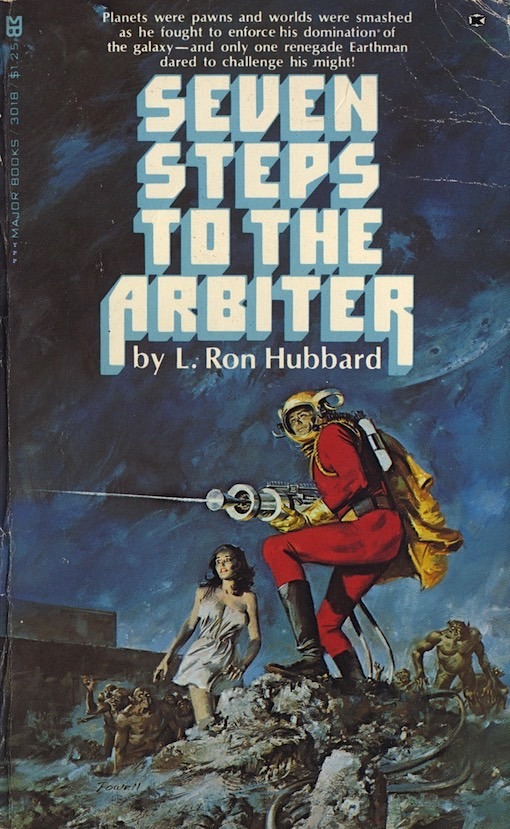
L RON HUBBARD "SEVEN STEPS TO THE ARBITER" (Major, 1975)
Artist not credited, but love the image!
#l ron hubbard#ron hubbard#pulp#pulp books#pulp novel#pulp science fiction#pulp sci fi#sci fi#science fiction#scientology#pulps#pulp art#70s pulp#1970s pulp#70s science fiction#70s sci fi art#1970s sci fi#1970s science fiction#70s aesthetic#1970s aesthetic
33 notes
·
View notes
Text
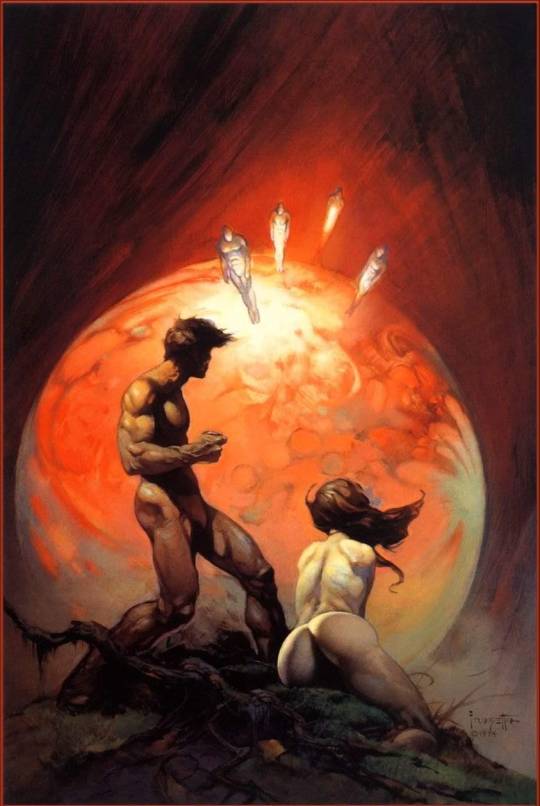
Artist: Frank Frazetta
12 notes
·
View notes
Text
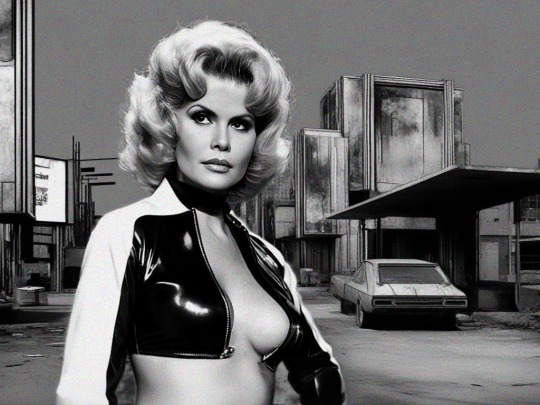
Searching Neon Dome City for the killer known as The Cold Neptunian and wanted in 7 planetary systems, from the classic Spacetime Sally episode, 'Before the Night is Done, Before the Morning Comes'
#scifi#science fiction#retro#retro sci fi#retro aesthetic#retro science fiction#retro scifi#1970s sci fi#1970s style#art#artwork#ai artwork#ai art#scifi art#scifi aesthetic#retro futurism#scifiart
11 notes
·
View notes
Text

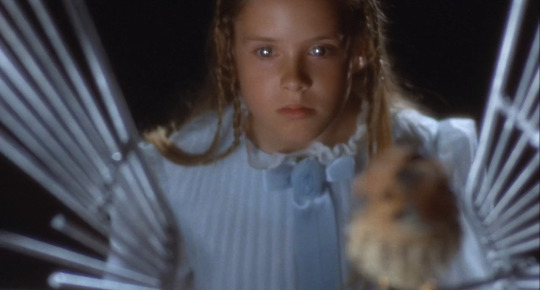




The Visitor (1979)
#the visitor#my posts#sci fi#horror#sci fi horror#giulio paradisi#john huston#1970s horror#70s horror#1970s sci fi#70s sci fi#film#movies#screencaps#horrorcaps#evil children#creepy children#antichrist#1970s#70s#horrorstills#fantasy horror#pong#stridulum#horror aesthetic#movie titles#title screen#horror community#grindhouse#horroredit
22 notes
·
View notes
Text
On December 21, 1973, Fantastic Planet debuted in Czechoslovakia.

Here's some new art to mark the occasion!
#fantastic planet#rene laloux#adult animation#experimental film#art film#art house film#science fiction#sci fi fantasy#1970s sci fi#surrealist film#czech film#french film#tcm underground#sci fi#science fiction movies
14 notes
·
View notes
Text

Dark Star by Alan Dean Foster with the gnarliest cover art I have ever seen by Michael Herring. Paperback from Del Rey/Ballantine, 1974.
#not mine!!!#my uncle is the one who got me into sf inadvertnatly and he has cool books#Alan Dean Foster#michael herring#1970s sci fi books#1970s sci fi art#1970s paperback#dark star#1970s sci fi#vintage sci fi#retro sci fi#science fiction#sci fi#vintage books#sci fi art#golden age science fiction
4 notes
·
View notes
Text



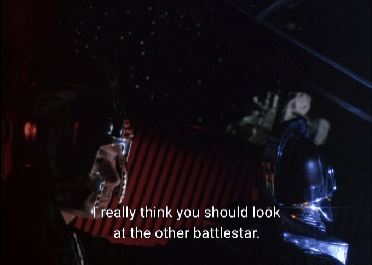
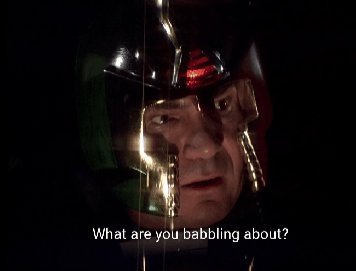



🤣 even in the original series Baltar is a fucking idiot
15 notes
·
View notes
Text
Doctor Who at 60: the show has always tapped into political issues – but never more so than in the 1970s
by Jamie Medhurst, Professor of Film and Media at Aberystwyth University
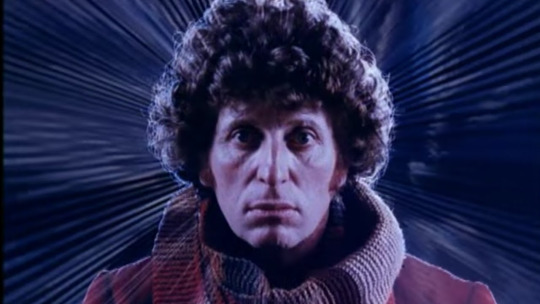
Doctor Who hit television screens at a key period in British television history. It launched on Saturday November 23, 1963, at 5.15pm, being somewhat overshadowed by the assassination of US president John F. Kennedy the previous day.
Set firmly within the BBC’s public service broadcasting ethos of informing, educating and entertaining, Doctor Who quickly became a mainstay of Saturday-evening viewing. By 1965, it was drawing in around 10 million viewers.
Throughout its history, Doctor Who has tapped into political, social and moral issues of the day – sometimes explicitly, other times more subtly. During the 1970s, when the Doctor was played by Jon Pertwee and Tom Baker, there were a number of examples of this.
Doctor Who in the 1970s
The 1970s were a period of political and social divisions: relationships between the government the unions in the first part of the decade was strained, exemplified by the miners’ strikes of 1972 and 1974. The political consensus that had dominated since 1945 was under pressure with talk of a break-up of the UK in the form of Welsh and Scottish Assemblies.
In his cultural history of Doctor Who, Inside the Tardis, television historian James Chapman argued that the 1970s painted “an uncomfortably sinister projection of the sort of society that Britain might come”.
It was never clear if Doctor Who storylines during this time were set in the present or at some point in the future. The fact that one of the lead characters, Brigadier Lethbridge-Stewart of the United Nations Intelligence Task Force (UNIT), calls the prime minister “Madam” in a telephone conversation in one episode suggests the latter.
youtube
As for some of the more politically engaged stories, The Green Death (1973), or “the one with the giant maggots” as it is known by fans, certainly pulled no punches. Described by Chapman as an “eco disaster narrative”, it pitted corporate greed and capitalism against environmental activists (portrayed here as Welsh hippies) and their concerns for the planet.
In the episode, Global Chemicals, run by a faceless machine, is tipping waste from its petrochemical plant into a disused mine in the south Wales valleys (cue awful Welsh stereotypes). The green sludge not only kills people, but creates mutant maggots which also attack. As fears grew and the green movement gained momentum in the early 1970s, this story would have resonated with large parts of the audience.
When the Doctor visits the planet Peladon in The Curse of Peladon (1972), the planet is attempting to join the Galactic Federation. There are those on the planet who argue for joining, while opponents are just as vociferous, arguing that joining the Federation would destroy the old ways of the planet.
Sound familiar? This is the time that Britain was negotiating to join the European Economic Community, as it did in 1973. Interestingly, the serial was broadcast during the time of the 1972 miners’ strike (leading to many viewers missing later episodes due to power cuts).
The follow-up story, The Monster of Peladon (1974), is set against a backdrop of industrial strife and conflict involving miners.
Tom Baker’s Doctor
In what many consider to be one of the best classic serials, Genesis of the Daleks (1975) Tom Baker’s doctor continued the tradition of raising complex political, social and moral issues.
youtube
Sent back in time by the Time Lords to change the course of history, the Doctor at one point has an opportunity to destroy the mutations which form the “body” of the Dalek (inside their metal casing) and destroy the Dalek race forever. Holding two wires close to each other, about to create an explosion in the incubation room, he asks himself and his companions: “Have I that right?”
Having the ability to see the future, he says that future planets will become allies in fighting the evil of the Daleks. Had he the right to change the course of history? Given the symbolism used in the story (salutes, black outfits, references to a “pure” race) this was a clear reference to the rise of the Nazis.
The political allegories didn’t end in the 1970s. One of the most blatant can be seen in the 1988 serial, The Happiness Patrol. The main antagonist, Helen A (played by Sheila Hancock), a ruthless and tyrannical leader is said to be modelled on Conservative prime minister, Margaret Thatcher. The fact that Hancock appears to be impersonating Thatcher lends a certain degree of credence to this belief.
Anybody who argues that the revival of Doctor Who in 2005 saw a more political edge to the storylines need only look back over 60 years. Now that we can do this thanks to the BBC uploading more than 800 episodes onto iPlayer, it will become clear to all.
Doctor Who – especially during its Golden Age in the 1970s – has always been political.
#science fiction#science fiction and fantasy#sci fi TV#Doctor Who#john pertwee#Tom Baker#Sci Fi Time Capsule#1970s tv#1970s sci fi#featured#Youtube
2 notes
·
View notes
Photo
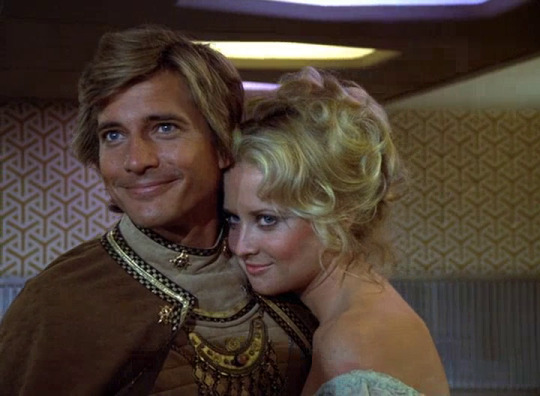

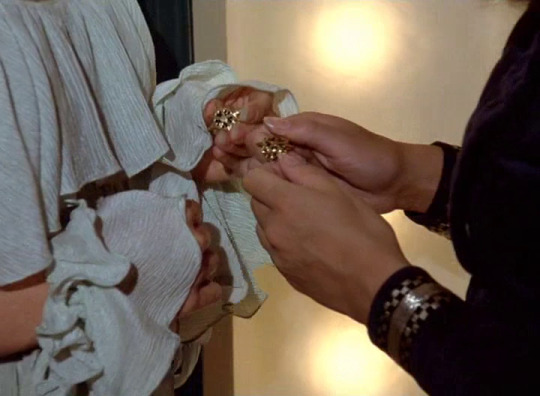

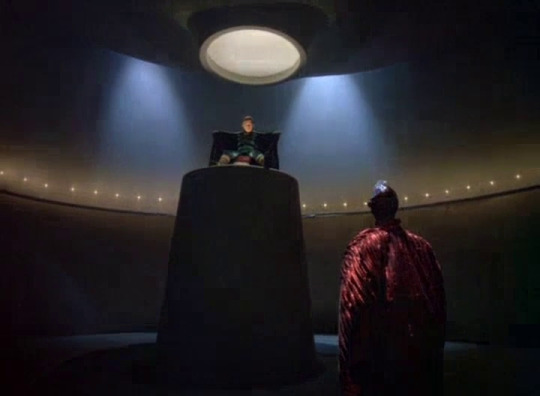

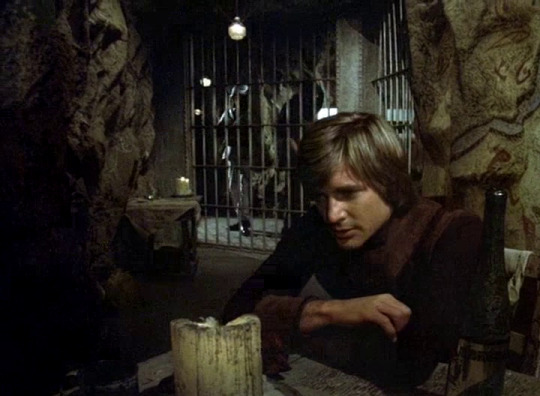
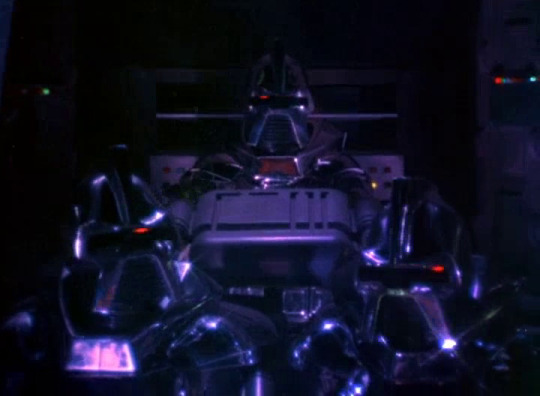

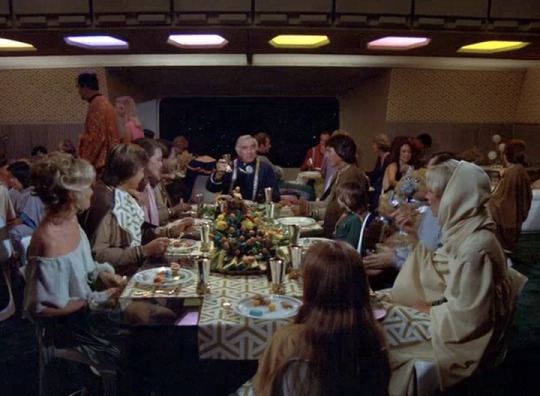
"The Long Patrol" was the fifth episode of BATTLESTAR GALACTICA, originally airing on October 15, 1978.
Lt. Starbuck, traveling incognito on a reconnaissance mission, is mistaken for an escaped prisoner from a penal colony where the descendants of criminals are incarcerated (and named) for the crimes of their ancestors. Arlene Martel (Star Trek's original T'Pring) plays the sultry Adulteress 58, who takes a liking to the Lieutenant.
The episode opens with Starbuck juggling dates between Athena and Cassiopeia on the same evening in the same restaurant, and it marks the end of any real animosity between the two rivals as they can both see the humor in the situation. I love how the table linens on the Rising Star match the dining room wallpaper.
#battlestar galactica#battlestar galactica 1978#bsg1978#the long patrol#starbuck#lieutenant starbuck#lieutenant athena#cassiopeia#the rising star#adulteress 58#dirk benedict#arlene martel#laurette spang#maren jensen#1970s tv#1970s sci fi
20 notes
·
View notes
Text
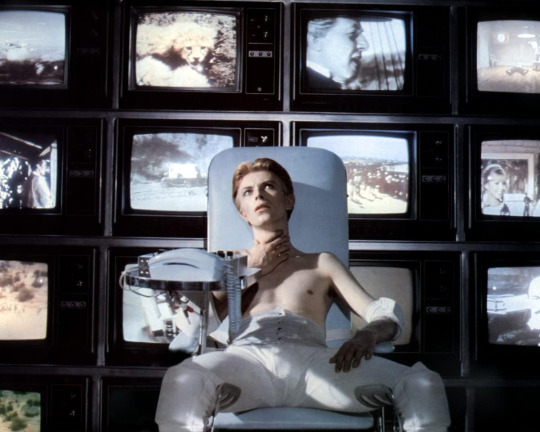
David Bowie in The Man Who Fell to Earth (1976)
181 notes
·
View notes
Text

#stable diffusion#ai#ai art#ai girl#ai woman#sexy ai art#seductive#sexy#sexy pose#sexy content#sexy ai#beautiful#beauty#1970s sci fi#70s aesthetic#1970s
8 notes
·
View notes
Text

Jean-Marie Hon and Terry Lester from ARK II (CBS, 1976)
#Jean-Marie Hon#Terry Lester#science fiction#sci fi#television#cult tv#70s tv#70s tv shows#70s tv series#1970s tv#1970s television#1970s sci fi#1970s science-fiction#scifi#ark#ark 2#ark II#cbs#cbs tv#apocalypse#post apocalyptic
22 notes
·
View notes
Text

Discarded Polaroid
4 notes
·
View notes
Text
Remembering legendary filmmaker Ishirō Honda! ^__^
#geek#film#blog#happy birthday#filmmaker#ishiro honda#japanese cinema#godzilla#rodan#mothra#kaiju#pop culture icon#gone but not forgotten#destroy all monsters#1950s sci fi#1960s sci fi#1970s sci fi#sci fi#monster movies#classic cinema#cult classic#war of the gargantuas#king kong vs godzilla#ghidorah the three headed monster#terror of mechagodzilla#atragon
2 notes
·
View notes